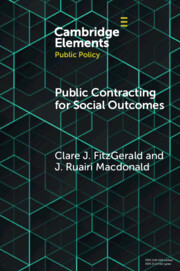Refine search
Actions for selected content:
1 results

Public Contracting for Social Outcomes
-
- Published online:
- 12 December 2024
- Print publication:
- 12 December 2024
-
- Element
-
- You have access
- Open access
- HTML
- Export citation
